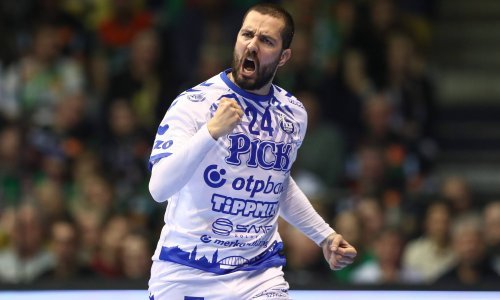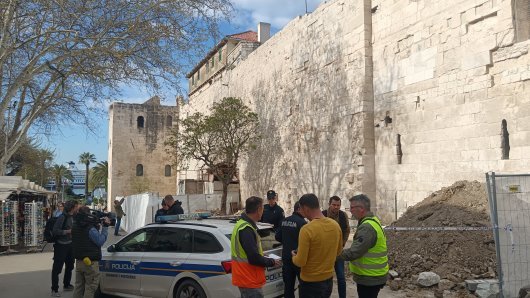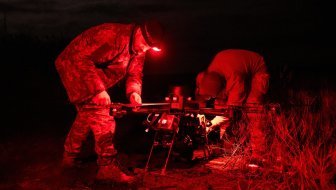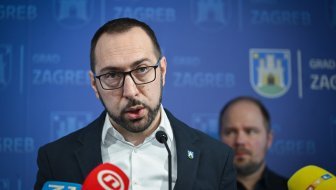The Serbian government will never accept threats and pressure by Serbs in northern Kosovo concerning the agreement on the normalisation of relations with Kosovo, Serbia's First Deputy Prime Minister Aleksandar Vucic said in Zagreb on Monday, convinced that the majority of Serbian citizens would support the agreement between Belgrade and Pristina at a possible referendum.
"Accepting the agreement means to accept life and future for Serbia. I am convinced that the majority of Serb citizens will support the agreement", Vucic underscored at a joint press conference with Croatia's Foreign and European Affairs Minister Vesna Pusic.
Even though there has been no decision to hold a referendum about the so-called Brussels agreement, the Serbian government is not opposed to the idea but only if the referendum deals with just the text of the agreement, whereas Serbs in northern Kosovo link this issue to the constitution which reads that Kosovo is an indivisible part of Serbia.
"We are waiting for a decision by the Serbs in northern Kosovo. There is no point to the referendum if they do not agree to implement it (the agreement) if the result does not go in their favour", Vucic added and reiterated that if the agreement were to "fall" then he would resign and the government fall.
"Decisions in Serbia are made by institutions. In Serbia the majority of citizens and the people will decide and not a minority that thinks differently and wishes to exploit its position", he said.
The agreement was recently initialled in Brussels by Serbian and Kosovo prime ministers Ivica Dacic and Hashim Thaci and later adopted in the Serbian assembly but came across objections from Serbs from northern Kosovo and the Democratic Party headed by former PM Vojislav Kostunica.
The agreement, which resolves the status of municipalities with a majority Serb population in northern Kosovo, opened the way for Serbia's path toward the European Union and a possible date for the start of accession negotiations.
Vucic thanked Minister Pusic for her letter of support to EU High Commissioner for Foreign Affairs and Security Policy Catherine Ashton for mediating in the negotiations between Dacic and Thaci as well as for Croatia's support to Serbia on its European path.
Questioned by reporters, Vucic denied allegations that Serbia had recently entered a military pact with Russia and former Soviet countries, explaining that this referred to mere parliamentary cooperation and not a military alliance and that Serbia had gained observer status in that organisation similar to its status in NATO, adding that Belgrade cooperated on the military front with NATO through the Partnership for Peace programme as a possible candidate for membership of that alliance.



































